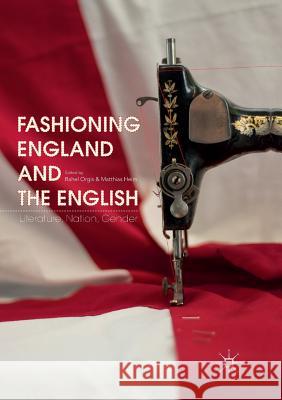Fashioning England and the English: Literature, Nation, Gender » książka
topmenu
Fashioning England and the English: Literature, Nation, Gender
ISBN-13: 9783030063689 / Angielski / Miękka / 2018 / 322 str.
Kategorie:
Kategorie BISAC:
Wydawca:
Palgrave MacMillan
Język:
Angielski
ISBN-13:
9783030063689
Rok wydania:
2018
Wydanie:
Softcover Repri
Ilość stron:
322
Waga:
0.42 kg
Wymiary:
21.01 x 14.81 x 1.88
Oprawa:
Miękka
Wolumenów:
01
Dodatkowe informacje:
Wydanie ilustrowane











